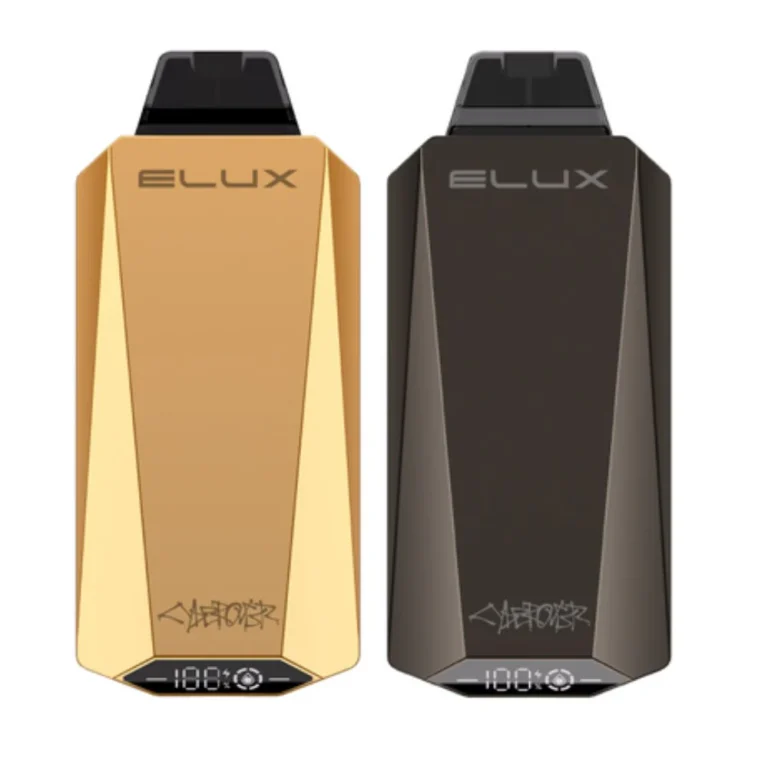Does Vapor Set Off Smoke Alarms?
Vaping has become increasingly popular in recent years as an alternative to smoking, especially among individuals who want to reduce their exposure to harmful chemicals found in traditional cigarettes. While vaping involves inhaling vapor rather than smoke, a common question many vapers have is whether the vapor can set off smoke alarms. The short answer is that vapor from e-cigarettes is unlikely to trigger smoke alarms in most situations. However, there are several factors to consider, including the type of smoke alarm, the environment in which you’re vaping, and the quantity of vapor released. This article explores how and why vapor might or might not set off smoke alarms, helping you understand the factors at play.
Thank you for reading this post, don't forget to subscribe!Smoke alarms are designed to detect particles in the air, such as those produced by fire. Traditional smoke alarms use two main technologies: ionization and photoelectric. Ionization smoke detectors are sensitive to smaller particles that are commonly produced by smoke, while photoelectric smoke alarms are designed to detect larger particles, such as those from a blazing fire. Since vapor produced by e-cigarettes is made up of tiny liquid droplets rather than solid particles like smoke, it’s generally not dense enough to trigger an alarm. However, in certain circumstances, such as vaping in a small, enclosed space, excessive vapor could potentially set off a smoke alarm.
How Smoke Alarms Work
Before delving into why vapor doesn’t generally trigger smoke alarms, it’s important to understand how these devices work. Smoke alarms are sensitive to particles in the air. Here’s a brief overview of how the two most common types of smoke alarms function:
- Ionization Smoke Alarms: These alarms use a small amount of radioactive material to ionize the air inside the detector. This process creates charged particles, and when smoke enters the chamber, it disrupts the flow of ions, causing the alarm to go off. Ionization alarms are generally more responsive to smaller smoke particles, which are produced by fast-burning fires.
- Photoelectric Smoke Alarms: These alarms use a light sensor to detect smoke. When smoke enters the sensing chamber, it scatters the light beam, triggering the alarm. Photoelectric alarms are more sensitive to larger smoke particles that are generated by slower, smoldering fires.
Since vapor consists of liquid droplets that are much smaller than the particles produced by fire, they are unlikely to interfere with the ionization or light scattering processes in most smoke alarms.
Why Vapor Usually Doesn’t Trigger Smoke Alarms
The primary reason vapor from e-cigarettes doesn’t typically trigger smoke alarms is that it’s composed of fine droplets of e-liquid rather than solid particles like those found in smoke. The concentration of vapor produced by most e-cigarettes is low enough that it doesn’t interfere with the sensors in smoke alarms.
- Density of Vapor: Vapor is much less dense than smoke. Smoke from a fire contains particulate matter, such as ash, which can easily set off a smoke alarm. In contrast, the vapor from an e-cigarette is a fine mist of liquid droplets that dissipates quickly in the air. Since there is less material to trigger the alarm, it’s unlikely to set it off unless you’re vaping heavily in a confined space.
- Different Properties: Smoke and vapor have different physical properties. Smoke is produced by combustion, which involves a chemical reaction that creates solid particles. Vapor, on the other hand, is created by heating a liquid to produce an aerosol. The smaller, liquid particles of vapor are simply not as easily detected by smoke alarms, which are designed to sense larger solid particles.
- Vapor Disperses Quickly: Another reason why vapor doesn’t usually set off smoke alarms is that it disperses quickly. When you exhale vapor, it typically dissipates in a matter of seconds. In contrast, smoke from a fire tends to linger in the air for longer periods, making it easier to detect.
- Modern Smoke Alarms: Modern smoke alarms are designed to be less sensitive to false alarms. Many newer models have technology that differentiates between the particles of smoke and other particles, such as those from cooking or vaping, to reduce the risk of false alarms. As a result, smoke alarms in newer homes or buildings are less likely to be triggered by vapor.
When Could Vapor Set Off a Smoke Alarm?
While it’s unlikely that vapor will trigger a smoke alarm in most situations, there are certain circumstances where it might be more likely to occur:
- Vaping in a Small, Enclosed Space: In very small, poorly ventilated areas where there’s little airflow, vapor can accumulate quickly. If you’re vaping heavily in a confined space, such as a bathroom or small room, the concentration of vapor may increase enough to potentially set off a sensitive smoke alarm. However, even in these situations, it would generally require a significant amount of vapor for a smoke alarm to be triggered.
- Sensitive Smoke Alarms: Some smoke alarms are more sensitive than others, especially older models. If the smoke alarm is highly sensitive or is located very close to where you’re vaping, it might trigger if there’s a significant amount of vapor in the air.
- Very High Levels of Vapor: If you’re vaping with a high-powered device or producing excessive amounts of vapor in a short period, it’s possible that the concentration of particles in the air could cause a disruption in the ionization or light scattering process in the alarm. However, this would be quite rare.
Tips to Prevent Setting Off Smoke Alarms
If you’re concerned about setting off a smoke alarm while vaping, here are some tips to help you avoid triggering the alarm:
- Vape in a Well-Ventilated Area: Ensure there’s good airflow when you vape. Open a window or use a fan to help disperse the vapor quickly and prevent it from accumulating.
- Vape Away from Smoke Detectors: Avoid vaping directly under or near smoke alarms, especially in small, enclosed rooms.
- Use Low-Vapor Devices: Opt for e-cigarettes or vapes that produce less vapor. This can help reduce the likelihood of filling a room with excess vapor.
- Regularly Maintain Smoke Alarms: If you’re using a smoke alarm in a home with frequent vaping, regular maintenance and testing of the alarm can help ensure it’s working properly and not overly sensitive to false alarms.
Conclusion
In most cases, vapor from e-cigarettes does not set off smoke alarms. This is because vapor is made up of fine liquid droplets, not solid particles like smoke, and it disperses quickly in the air. Smoke alarms are designed to detect larger particles, such as those produced by fires, and vapor is generally not dense enough to trigger these alarms. However, under certain circumstances, such as vaping in a small, enclosed space or using a particularly sensitive smoke alarm, it’s possible for vapor to set off an alarm. To avoid this, make sure to vape in well-ventilated areas, keep a distance from smoke detectors, and use devices that produce less vapor. Understanding how smoke alarms work and the nature of vapor can help you prevent triggering false alarms while still enjoying your vape experience.
FAQs
- Can vaping in a car set off the smoke alarm?
No, it’s highly unlikely that vaping in a car will trigger a smoke alarm since cars typically don’t have smoke detectors. However, if you’re vaping in a hotel or other building with smoke alarms, it could be a concern in confined spaces. - Why does my smoke alarm go off when I vape?
This could happen if you’re vaping in a small space with little ventilation, where vapor can accumulate enough to set off a sensitive alarm. - Can vapor damage smoke alarms?
Vapor from e-cigarettes is unlikely to damage smoke alarms, but excessive buildup of residue from frequent vaping in the same area could potentially interfere with the alarm’s sensors over time. - Do all smoke alarms detect vapor?
No, most smoke alarms are designed to detect smoke particles from fires, not vapor from e-cigarettes. However, some alarms might be more sensitive and trigger on non-smoke particles. - Is it safe to vape indoors?
Yes, but it’s important to ensure proper ventilation and be mindful of any smoke alarms in the area. Avoid vaping directly under or near alarms to prevent false triggers.





